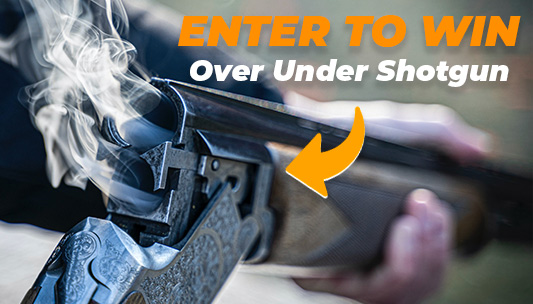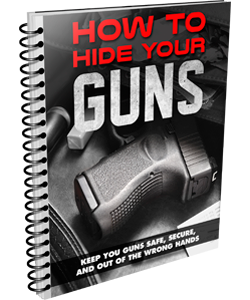It’s furbearer hunting season, which is a great time for hunting coyotes. Pelts have been in demand since 2019, and they adorn parkas everywhere. But if you’re into coyote hunting for protecting your livestock or for sport, now's a good time to do so.
It’s time to channel the spirit of the roadrunner! To help you, here are some killer tips when hunting coyotes.
RELATED: Hunting Gear That Comes in Handy All Year Round
Killer Tips for Hunting Coyotes
Check Your State Regulations
For those new to the game, getting to know your state’s regulations should be the first step. Imagine getting all geared up and staked out, only to have a game warden approach you. Instead of tracking game, you're listening to a lecture about not following rules.
Of course, hunting licenses are usually standard for most states. When outside your home state, never assume your local rules are applied by default.

The good news is, you can hunt coyotes the whole year in general. But, there are certain states that impose restrictions depending on the time of year. Like any other law, these things tend to change over time.
So, it's best to keep yourself updated with local laws. Besides, it’s always a good idea to know about seasons, bag limits, and allowed methods.
Understand the Coyote's Behavior
Coyotes exhibit particular behavior distinct from other games or predator hunts. They show different behavioral patterns at different times of the year.
You don't have to take a course to master their behavior. But, understanding the nature of the coyote can lead to easier and more successful trips.
Scouting your target area helps avoid going home empty-handed. Tracks, kill sites, and droppings often give out nearby dens.

Learning to recognize coyote sounds help you distinguish where they live.
More so, don’t give away your setup by running roughshod over the area you plan to hunt.
Best Time to Hunt Coyotes
Apply what you know about coyote behavior in the context of your hunting schedule.

Foraging and mating habits change depending on the time of year. Different seasons will need different strategies, calls, and setups.
Different Seasons to Consider in Hunting Coyotes
If you’re into pelts, you need to realize that their furs are thickest and most desirable during the winter. Consider going after them from October to February when they sport the thickest coats.
Mating season starts in December, but breeding usually peaks from February to March. Note that gestation periods average of two months.
Rookie hunters might want to take advantage of August. This is the time when young coyotes start learning to hunt with their parents. With less experience, these youngsters will be all over the place and you’ll have a better time picking them off.
Coyotes are most active during early mornings and nights. Like other predators, they rest during the midday. Noontime is when they spot shade and try to cool down.
How To Choose the Best Coyote Hunting Rifle
It’s not only a matter of choosing the right gun. Ammunition, scope, and lights also come into play. Choosing between a bolt-action or a sport-hunting rifle is a matter of personal choice.

But, do make sure to consider the attributes below when selecting your weapon of choice:
1. Size and Weight
If you’re gonna lug a gun across the trails for miles, better get something that you can carry comfortably. Add-ons like scopes rest and others will build up your luggage considerably.
Then, if your hunting party meets success, you’ll be carrying more baggage on the way home.
2. Accuracy
Coyote hunting is usually made from a distance, so you’ll definitely need an accurate rifle. These dogs are deceptively smaller than you think. From a distance, aiming for the vitals is like shooting a lightbulb.
Coyotes are on average around 50 pounds, so the lightweight makes them fidgety. You’ll need great shooting, so pick a gun that offers better accuracy.
3. Power
Basic physics teaches us that the longer the bullet travels, the less power it packs. At long distances, it’s crucial your rifle delivers the same knockout punch over 150 yards and beyond. Otherwise, you’ll be witnessing a lot of narrow escapes instead of instant kills.
4. Projectile
Depending on your goal, you'll need to choose a different projectile.
- For those who want to keep the pelt, get a smaller caliber with a spear point. This ensures that there is minimal damage to the hide.
- Meanwhile, non-pelt hunters would want to spare the animals from agony. They can do so by using cartridges that expand on impact and deliver instant death.
Coyote Hunting Gears
Coyotes are wily, pun intended. But, they are color-blind like most mammals. They see objects in grayish hues. Getting coyote hunting gear such as camouflage clothing can help cover your tracks.
You’ll want to invest in camo jackets, gloves, and headgear to reduce your visibility. If they can see you, you don’t have a shot.
Coyote Calling Scent
For the scent, avoid settling upwind. Like most dogs, they rely on their superior sense of smell to hunt and identify danger.
When choosing your set-up spot, make sure the wind is in your face when you start using your calls. Coyotes will approach from the downwind side.
Coyote Hunting Light and Scope
Relying on your eyesight when hunting coyotes is both admirable and foolhardy. Coyote hunting often happens from a distance during early mornings or evenings.
These times of the day usually have poor lighting. Fortunately, magnification and illumination devices are easily available on the cheap.
Getting a coyote hunting scope and quality binoculars won’t break the bank. For battery-operated devices, always carry an extra set of batteries or two.

For night hunts, a full-on spot can scare them and make them scurry away. A good tip would be to catch the animal’s eyes with the halo and use that it reaches the kill zone. This is the only time you should spot the target with a full-beam and take your shot.
Coyote Hunting Calls
At this point, older coyotes have likely heard them all. You’d get better luck hunting during August when the pups start hunting.
For veterans, try experimenting with using uncommon calls. Whether it’s electronic or hand calls, try to add variety.

This is so older coyotes won’t recognize them and turn tail. For the novice hunter, start with an electronic call that you can set automatically. This is so you don’t waste your time worrying if you’re doing it right with a hand call.
Coyote Hunting Decoys
Decoys also work wonders attracting coyotes. While calls can rouse a coyote’s interest, a visual decoy can make them interested enough to approach.
Apart from electronic decoys, seasoned hunters also find stuffed animals effective. Avoid placing decoys at open fields, instead of putting them on area edges.

With an understanding of your prey, you can increase your chances of bagging a coyote. Given that these canids are smart animals, hunting them becomes a challenging activity.
Remember to pack your essentials, practice infinite patience, and engage in safety practices. Soon, you’ll be a grizzled veteran that will earn Roadrunner’s respect. Happy hunting!
Watch this as KYA Field presents Coyote Hunting 101 – Tips, Tactics, and a Double Down Coyote Hunt:
Do you enjoy hunting coyotes in your area? Do you have other tips and tricks for hunters wishing to bag a coyote for the first time? Share with us your thoughts on the comment section below!
Up Next:
- 7 Best Scope For An AR-15 For Coyote Hunting
- Coyote Hunting Light For Your Hunting At Night | Coyote Hunting Lights
- Camping Checklist: Tips for a Safe Fall and Winter Camping Trip
Follow us on YouTube, Twitter, Tumblr, and Pinterest!
Disclaimer: All content on this site is for informational purposes only. Please read our full disclaimer here.
Editor’s Note: This post was originally published on December 2, 2020, and has been updated for quality and relevancy.





I have had good luck using realistic-looking waterfowl decoys. The kinds that sit on a short pole and have flappable wings are magnets for coyotes.